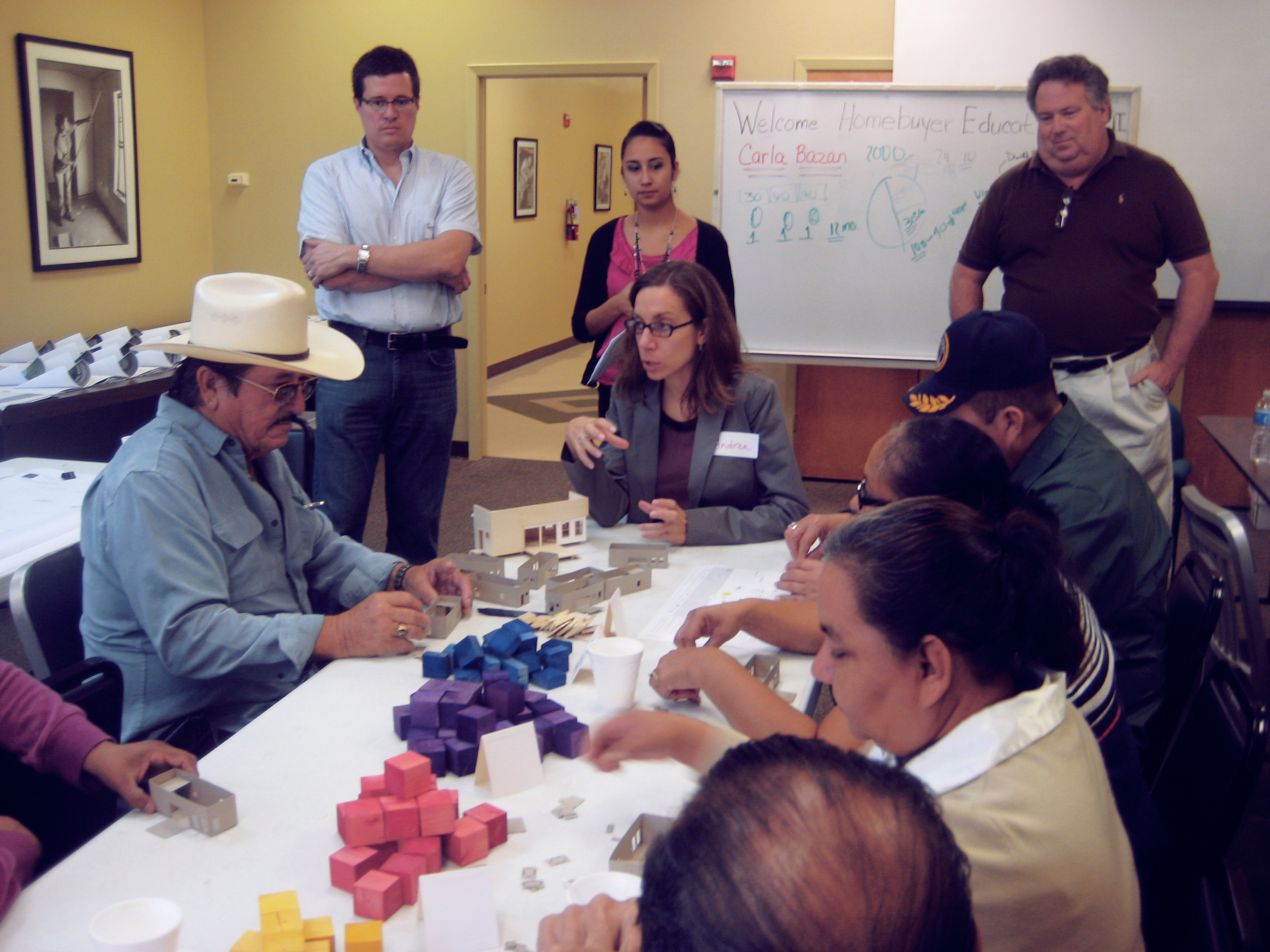media advisory
RAPIDO, a program that redesigns the entire U.S. Disaster Recovery Housing Process, will be presented at the United Nations Habitat III conference in Ecuador
DALLAS – buildingcommunityWORKSHOP ([bc]) is pleased to announce the launch of RAPIDORECOVERY.org, to advocate for RAPIDO, a program that redesigns the entire U.S. Disaster Recovery Housing Process with the people who are impacted the most. RAPIDO will be presented at Next City's World Stage at the United Nations Habitat III conference Wednesday, October 19th, 2016 at 9:30am.
The team - comprised of Community Development Corporation of Brownsville, [bc], LUPE, ARISE, Texas A&M Hazard Reduction and Recovery Center, and Texas Low Income Housing Information Service - are pleased to announce RAPIDORECOVERY.org to share information about RAPIDO. On the website you can download the RAPIDO technical guides, watch a short 3-minute documentary about the project and listen to the Habitat III Presentation.
For more information about the conference, visit https://habitat3.org/ or https://nextcity.org/habitat3
###
About buildingcommunityWORKSHOP
The buildingcommunityWORKSHOP is a Texas based nonprofit community design center seeking to improve the livability and viability of communities through the practice of thoughtful design and making. We enrich the lives of citizens by bringing design thinking to areas of our cities where resources are most scarce. To do so, [bc] recognizes that it must first understand the social, economic, and environmental issues facing a community before beginning work. www.bcworkshop.org
CONTACT
Elaine Morales
956-443-2211
elaine@bcworkshop.org
Press Photos
RAPIDO core construction
©buildingcommunityWORKSHOP
core expansion process
©buildingcommunityWORKSHOP
RAPIDO core construction
©buildingcommunityWORKSHOP
shifting the aid and implementation model for disaster recovery housing
©buildingcommunityWORKSHOP
community engagment desiging the core structure
©buildingcommunityWORKSHOP
Social Media
#RAPIDO
Tweet suggestions
Learn about #RAPIDO, a program that redesigns the entire U.S. Disaster Recovery Housing Process http://ow.ly/mgpJ305gZZG
#RAPIDO will be presented at the UN Habitat III conference this week. Join us in spreading the word. https://habitat3.org/
[bc] is excited to represent our RGV work @habitatIII ! Our #equity initiative is possible with the support of the @FordFoundation #RAPIDO
RAPIDO Overview
buildingcommunityWORKSHOP [bc]
Community Development Corporation of Brownsville (CDCB)
© 2016
The System Model
RAPIDO is a new holistic approach that enables communities to recover from disasters within months instead of years. Through understanding and re-designing the entire disaster recovery process with the people that are impacted the most, RAPIDO fosters resilience within Texas communities and abates the social and economic impacts of disaster.
Working with people with first-hand experience in the failures of the standard disaster recovery process following Hurricane Dolly in 2008, RAPIDO evaluated every level of the housing recovery process, including community outreach, case management, housing design & construction, labor recruitment, and policy design. RAPIDO is a response to long-term disaster recovery at a number of scales using a bottom up, community-based approach that is centered on the families it intends to support.
The RAPIDO model recognizes that “Pre-recovery” activities must start prior to a disaster. Pre-recovery means: 1) developing design guidelines with a diverse set of stakeholders to ensure varied and high quality home designs, 2) training a local labor force and pre-procuring materials to enable rebuilding to start as soon as possible, and 3) planning, preparing, and training recovery teams knowledgeable in outreach, case management, eligibility requirements, and the design and construction process in order to support local jurisdictions and assist families in navigating the recovery process. By investing in pre-covery, communities will be more resilient to future storms.
The Housing Model
RAPIDO delivers higher quality housing, reduces the response time in meeting the needs of affected families, and reduces the cost of current disaster response models. Utilizing a temp-to-perm strategy, RAPIDO provides immediate emergency housing while, in the same step, investing towards a permanent home.
This temp-to-perm system is built upon the “CORE”, a temporary, modular unit designed as a component of a permanent home. The CORE bridges the gap between relief and recovery housing with a single unit. Typically, manufactured emergency housing is disposed of after the emergency phase or when the family is ready to move on. The CORE has been designed instead, for durability and expansion. When resources are available and the post disaster conditions are stable, the CORE can be expanded through customizable additions into a permanent home to meet each family’s needs and preferences.
RAPIDO provided affected families the opportunity to work with a designer to determine the form and function of their replacement home through a set of meetings. These meetings offered homeowners choices in the style and type of home that would replace the one they lost. This process quickly restores the feeling of ownership and pride. Presenting choices, instead of a disposable or standard model home reestablishes a sense of control and agency during a period of time that often leaves families feeling helpless. In practice, these choices result in a home that better meets each family’s needs, builds stronger neighborhood attachment, and increased neighborhood stability and resilience.
RAPIDO Partners and Contact Person
Community Development Corporation Brownsville
Role: Program Administrator and Coordinator
Nick Mitchell-Bennett
nmitchell@cdcb.org
901 E Levee Street
Brownsville, TX 78520
http://www.cdcbrownsville.org
buildingcommunityWORKSHOP
Role: Design/Construction Lead and Program Coordinator
Brent A. Brown, AIA
brent@bcworkshop.org
609 East 11th Street. Brownsville, TX 78520
http://www.bcworkshop.org
La Unión del Pueblo Entero
Role: Community outreach.
Martha Sanchez
PO Box 188, San Juan, TX 78589
http://lupenet.org/
A Resource in Serving Equality (ARISE)
Role: Community outreach
Lourdes Flores
arisergv@gmail.com
P.O. Box 778, 1417 S. Tower Rd. Alamo, Texas 78516
http://www.arisesotex.org/ariseprofile0.aspx
Hazard Reduction and Recovery Center, Texas A&M University [HRRC]
Role: Policy Lead
Shannon Van Zandt
svanzandt@tamu.edu
College Station, TX 77843-3137
http://hrrc.arch.tamu.edu/
Texas Low Income Housing Information Services [TxLIHIS]
Role: Policy Advisor
John Henneberger
1800 West Sixth Street, Austin, TX 78703
http://texashousers.net/




